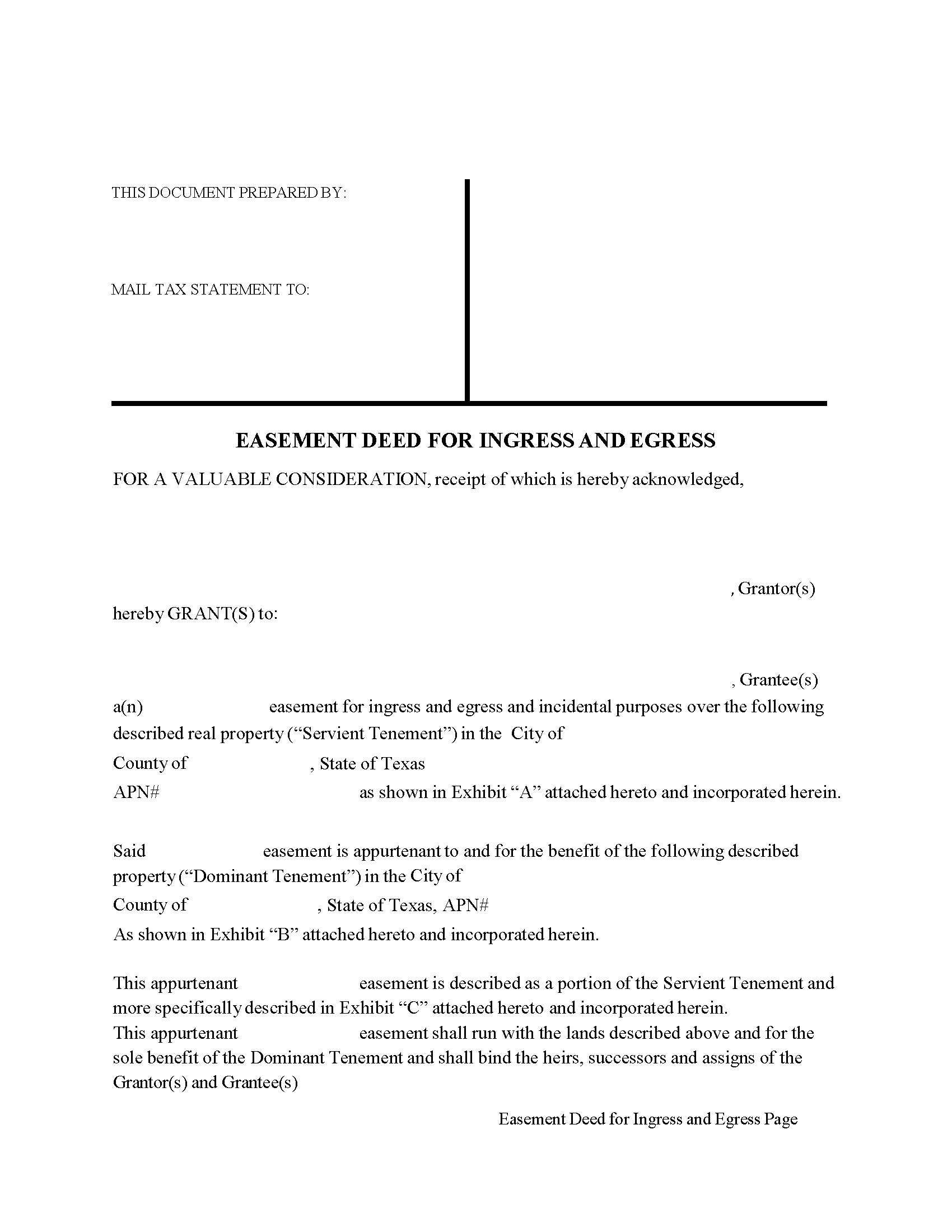Download Texas Easement Deed Legal Forms

Texas Easement Deed Overview

An easement is the non-possessory right to use another person's real property for a specific purpose. Easements exist distinct from the ownership of the land and do not constitute full ownership of the property in question. Easements can be both private and public. Private easements are those in which the enjoyment or use is restricted to one or a few individuals, while public easements are those in which the right or enjoyment of use is vested in the public generally or a community. Private easements are either appurtenant or in gross. Section 23.006 of the Texas Statutes discusses access easements in relation to partitioned property. The rights contained in an easement are created by an easement deed.
Because an easement represents an interest in land, it is required to be in writing, subscribed by the grantor, and delivered (Sec. 5.021). In order to be recorded, an easement deed must be signed by the grantor and properly acknowledged, sworn to with a jurat, or proved according to law (Sec. 12.001a). Original signatures are required. An easement deed may be refused for recording unless it has been signed and acknowledged or sworn to by the grantor in the presence of two or more credible witnesses or acknowledged and sworn to before and certified by an officer authorized to take acknowledgments or oaths (Sec. 12.001b). If the deed is acknowledged before a notary public in another state, it will be invalid for recordation in Texas if it does not have an official seal attached only if the jurisdiction in which the acknowledgment was taken requires the notary public to attach an official seal (Sec. 12.001d).
An unrecorded easement deed will be binding on the parties to the instrument, the party's heirs, and on a subsequent purchaser who does not pay a valuable consideration or who has notice of the instrument (Sec. 13.001c). An easement deed in this state will be void as to a creditor or subsequent purchaser for valuable consideration without notice unless the deed has been acknowledged, sworn to or proved, and filed for record (Sec. 13.001). An easement deed that is recorded in the county where the property subject to the deed is located will serve as constructive notice to all persons of the instrument and will also be open to public inspection (Sec. 13.002).
(Texas Easement Deed Package includes form, guidelines, and completed example)